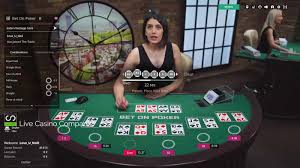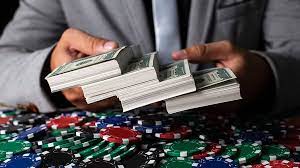Although there is no fixed formula to win a poker tournament, there are a few solid poker strategies that will help you to sooner or later figure out what you are going to do.
Play tight early in the tournament. The starting stack size is ridiculously small and as the blinds start to eat into your stack, you need to be as tight as you can. Furthermore, during the early stage, you are unmarked as a target at all. There are going to be a lot of “maniac” players that come in and eat your chips. Stay focused, avoid going on tilt, and don’t theirs.
Play aggressive late in the tournament. By now, the blinds should be extremely high and you are in real big trouble if you have a weak hand. However, you can use this as a chance to pick up small chips and survive. If you are the chip leader, be sure to protect your stack. If you think that you have the best hand late in the tournament, then go for it. But, make sure to play with a strong hand.
Here’s are some of the best poker strategies that you should follow if you want to win a poker tournament:
- Early on in the tournament.
a. Less is more – At the beginning of the tournament, you should play according to the tournament strategy
b. Look forFree Poker Sites – You can play poker freerolls without spending any money. And you can win huge money without any investment either.
c. Don’t tilt – Stay calm. Don’t let the opponents see you get upset and By doing this, you’ll have more chances to survive.
- When you see a good card for a cheap call.
a. Small Reliants – when you have a pocket pair and the flop brings a card lower than your pocket pair, you should call.
b. Pocket Pairs – when you have a pocket pair and the flop brings two cards higher than your pocket pair, you should call.
c. If you have a high card – in case you called preflop and missed, you should make a continuation bet (even if you didn’t hit). You could try to extract more money from your opponent.
d. Not enough chips on the table.
If you can’t manage to get enough chips on the table, you have to wait for a good hand. You should look for quick double ups, especially with two people dominated. You should bet the flop and either make a continuation bet if you missed or bet solid if you hit. Never check in poker when there’s a raiser but always call a small raise.
- When you want to bluff.
You have to prepare for this move. It’s important to give your bluffing skills a test. Try to remember important information about your opponents, like are they tight aggressive or loose passive. Extract this information from your opponents and retrive it back to yourself in the future. If you’re successful, you’ll remember the upcoming move as well as how to use street b Canberra poker strategy to take your opponents to the cleaners.
Street b Canberra poker strategy is exciting, but it goes hand in hand with Knowing Your Opponents Well Enough. If you’re good at reading your opponents, you’ll be able to pick out the information you need to make smart decisions, and this is particularly true for you online.
The Good Thing About Online 7Meter
Paradoxical as it may sound, but the expectation remains that, despite all the advantages of online poker, there are Sure Things going on somewhere under that bonnet. The never ending quest for the best poker strategy, the never ending quest for top poker tips and the never ending quest for getting better ones, there are players making steady, slow progress in the world of poker. These types of players quit their day jobs, odd hours researching on poker strategy and learning psychology to be the best player at the table. The effort is paying off.
Street b Canberra poker strategy, don’t necessarily go it alone, instead work with other like minded individuals to collectively improve your game. If you are serious about improving your game, then you are going to have to get a group of friends to play, and have fun doing so. If you are dedicated enough, you will have some friendly games to help pass the time while you are learning how to figure out who is bluffing who, and why.
Conclusion
Look, there are many things out there for you to consider when you decide to learn poker strategy. Are you prepared to put in the time and effort to learn how to improve your poker strategy? Playing poker is a lot of fun and personally it never got easier after learning the new poker strategy.

